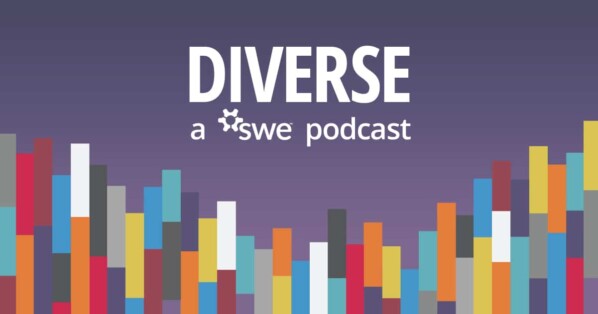This is an entry in Natalie’s blog Live Out Loud.
Privilege.
Privilege is the elephant in the room, that when left unchecked, tramples inclusion and sabotages a team’s potential for success.
Privilege is about the advantages that are available only to a particular person or group. We see it every day in the news … racial profiling … socio-economic inequality … religious tensions … constant reminders that in many situations the playing field is woefully unlevel.
This is not a new or comfortable conversation.
There are a lot of problems to solve in this space, so let’s start in the workplace. The workplace should be a sanctuary of meritocracy; an environment disposed to recognizing ability and results of individuals and teams toward a goal. We know that for teams to be great, diverse ideas and perspectives must be included to find the best solutions for any challenge.
The unavoidable presence of privilege creates an imbalance between people and can manifest as an exclusion in the workplace. We must take a proactive measure to prevent this.
Privilege impacts our ability to communicate – it makes some voices louder than others, some impossible to ignore, and reduces some to whispers. Privilege influences the make-up of our teams from who is hired, to who is promoted, and everyone who is retained. Privilege can get in the way of success. However, in many instances, we have the power to put our privilege to work and do not have to accept being the victims of circumstance.
The backbone of mitigating the negative effects of workplace privilege and leveling the playing field is engaged leadership, human resources and legal team reinforcing a business desire for an inclusive culture.
Leaders, this is for you, pursue achieving a diverse and inclusive culture just as you would any other business goal. The minute you assume the battle for inclusion is won, you start losing.
Policies, codes of conduct, and leadership messages lay the foundation for leaders at all levels and individual contributors to make a difference at the front line. Here is where we can all put our privilege to work.
First, check your privilege … you need to understand how you are privileged to realize how to use it.
For example, I am privileged to be able-bodied. A few years ago, my local SWE section added questions to all their pre-event surveys about ability needs. It started out as something new, and slowly we acquired a deeper understanding of the inclusivity of our events for those with ability needs beyond what the planning committee could anticipate. It became normal to ask ourselves to understand our able-bodied privilege and question what we needed to change to be more inclusive. A few years later, we had a speaker with Multiple Sclerosis. I consider her participation and the normalization of the section creating a more inclusive environment a victory on multiple levels. This seems like a small act, but it opens the door to making inclusive improvements in other ways.
As a mid-level manager at work, I have the privilege of positional authority and years of tenure. I can use my privilege as an experienced leader to advocate for those who are younger in their careers. Recently, when I was asked to change roles and relocate to another state, I shared my experience in detail with the human resources team and extrapolated to how team members earlier in their careers would be negatively affected by some of the elements of the existing policy. We got the policy updated and a team is working on addressing the outstanding feedback. No one set out to make an exclusive policy, and even though my circumstance remains unchanged, by understanding my privilege I could recommend changes for the betterment and inclusion of others going forward.
I have the privilege to work on the day shift of a three-shift operation. It’s easy to be blind to the needs of our second and third shift colleagues, so I make it a point to consistently ask how second and third shifts are being included. We’ve made changes to make leaders available more consistently on the second and third shift and have made a conscious effort to remove “off-shift” from our team’s vocabulary. We still have plenty of room for improvement but listening and proactively trying to make sure all three shifts are included improves the performance of the entire team. My team had a record year in 2018 while overcoming some significant challenges; inclusion is not the only reason we were successful, but it is undoubtedly helping.
Don’t worry if the change is small. Inclusion is a game of inches because inches become miles.
Experiencing privilege doesn’t make you bad.
It seems the individuals who experience the most privilege are often blissfully unaware of it.
While those who experience the least privilege cannot ignore the lack of it, and almost inevitably fall victim to it. To add insult to injury, the underprivileged individual is rarely positioned to right the imbalance even though it most acutely affects them.
Think of the last time someone brought up something wasn’t fair when they were the ones impacted … this can be perceived as whining or self-serving and cause additional harm in lieu of actually resolving the issue. Now think of a time when someone pointed out injustice, but they had nothing to gain or lose from it being corrected. Right or wrong, this opens the conversation differently. When a privilege-aware person initiates the conversation, it changes the landscape and perception of improving the inclusion process.
We can accelerate inclusion when we use our privilege to create positive change for others.
I think the majority of us fall somewhere in the middle of the privilege spectrum. Sometimes we experience high amounts of privilege, sometimes we don’t, depending on the circumstances.
When my wife and I go through airport security we often make light of how frequently she gets extra time with the TSA while I almost never do. We ended up signing up for additional security clearance to minimize the “extra search” days related to her Lebanese last name.
When people recognize their privilege, I think it’s normal to have mixed emotions about it – sometimes feeling relieved, guilty, angry, and even defensive about the experience. It seems like the privilege you have is completely out of your control. Similar to poker, you cannot control what cards you are dealt or what cards come up in the draw, you can work hard to learn how to play, but it may be much easier for some to learn than others … again, everyone has a chance to win, but the playing field is uneven.
No matter what privilege you experience, proactively use it to build an inclusive culture.
Expanding your perspective for the benefit of others has far reaching positive effects and will position you to support an inclusive culture. The cool part is, while you are using your privilege to help someone else, they’re using theirs to help you.
Let’s fight privilege with privilege … How do you challenge your norms and put your privilege to work?
Let’s have the conversation!
Natalie
SWE Director of Diversity & Inclusion
She/Her/Hers
About Natalie
 Natalie Vanderspiegel (she/her/hers) serves as the Director of Diversity & Inclusion for the Society of Women Engineers (SWE). She works at Solar Turbines advocating for a team that builds and tests robust overhauled natural gas turbines around our world. Natalie lives in Dallas, TX with her wife and their dog. Her educational background includes degrees in Ceramic Engineering and Engineering Management from Missouri University of Science & Technology.
Natalie Vanderspiegel (she/her/hers) serves as the Director of Diversity & Inclusion for the Society of Women Engineers (SWE). She works at Solar Turbines advocating for a team that builds and tests robust overhauled natural gas turbines around our world. Natalie lives in Dallas, TX with her wife and their dog. Her educational background includes degrees in Ceramic Engineering and Engineering Management from Missouri University of Science & Technology.
Disclaimer: The views and opinions expressed in this blog are those of the author and do not necessarily reflect the policy or position of the Society of Women Engineers and/or Solar Turbines.
Author
-

SWE Blog provides up-to-date information and news about the Society and how our members are making a difference every day. You’ll find stories about SWE members, engineering, technology, and other STEM-related topics.






